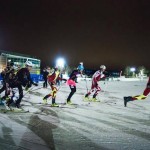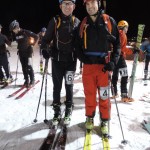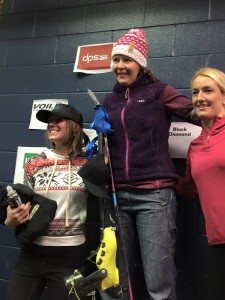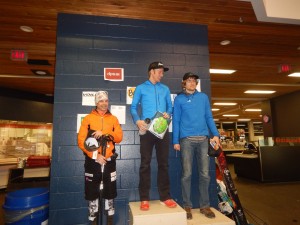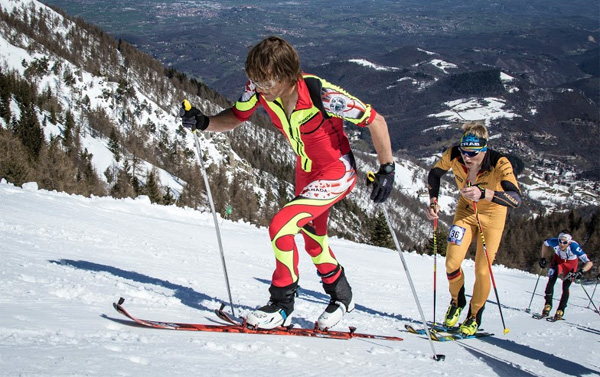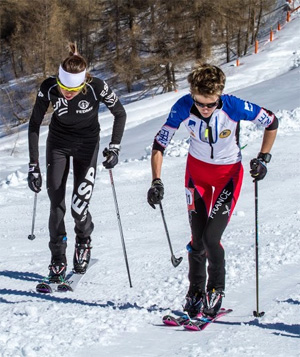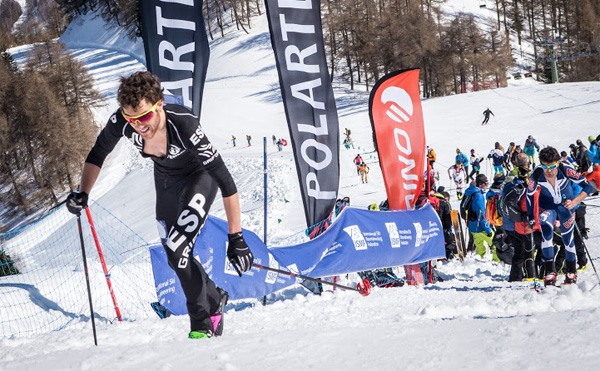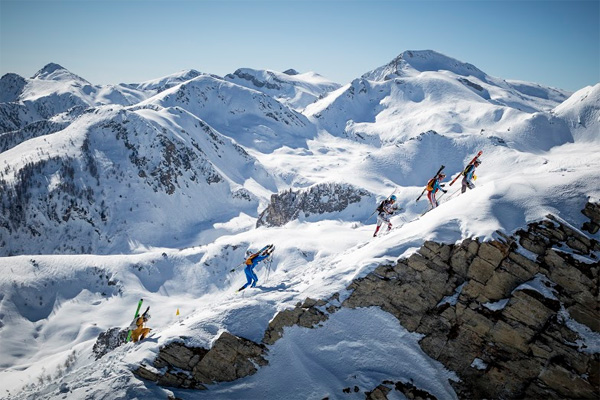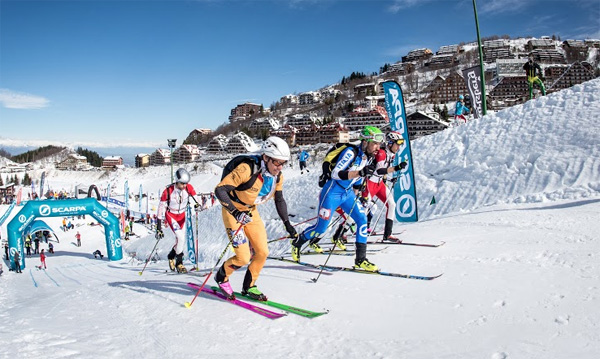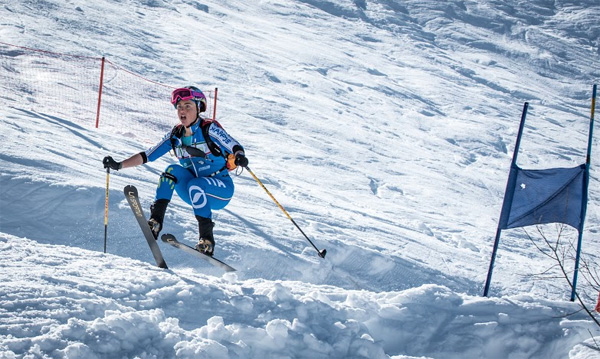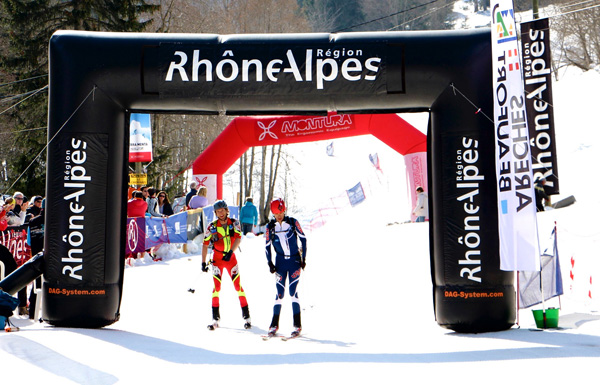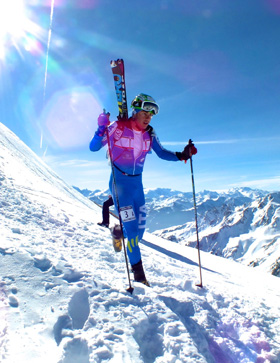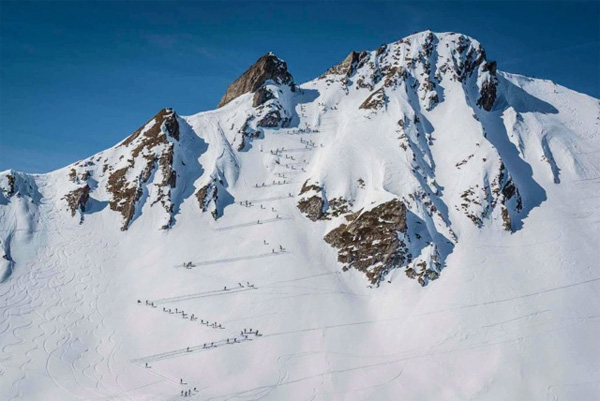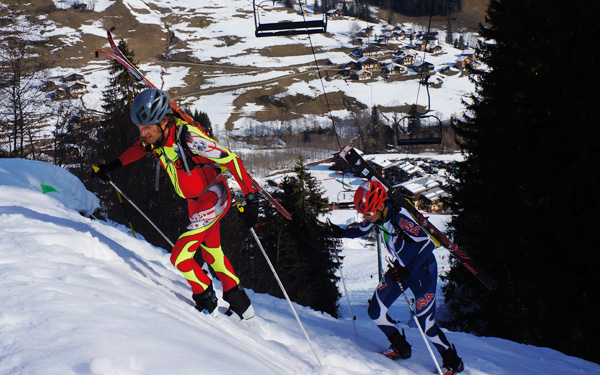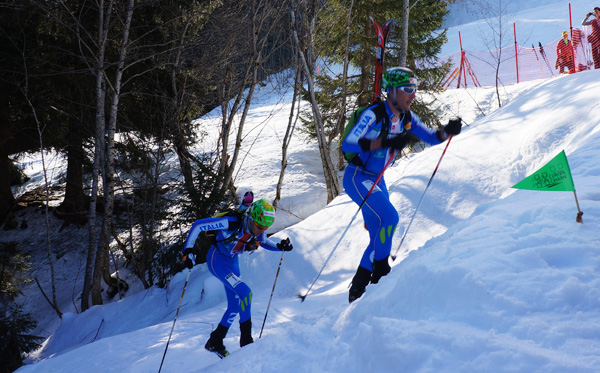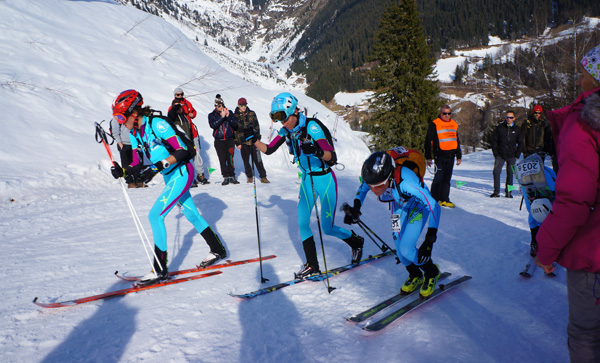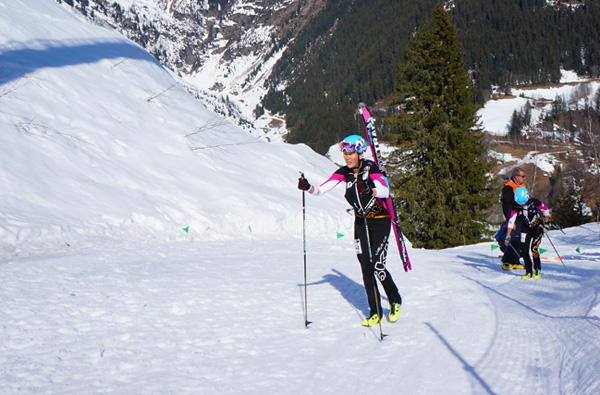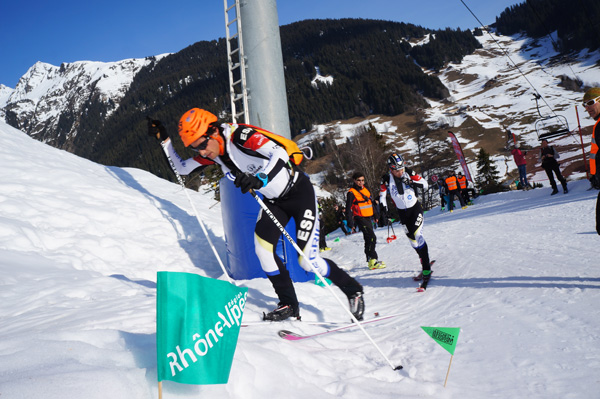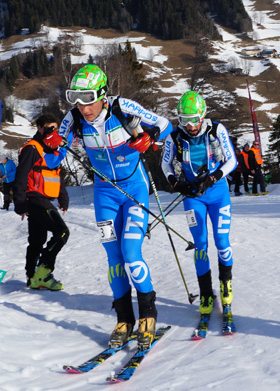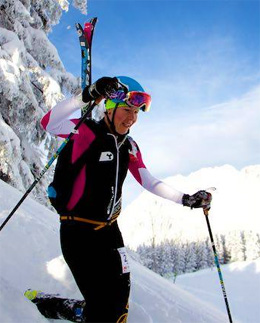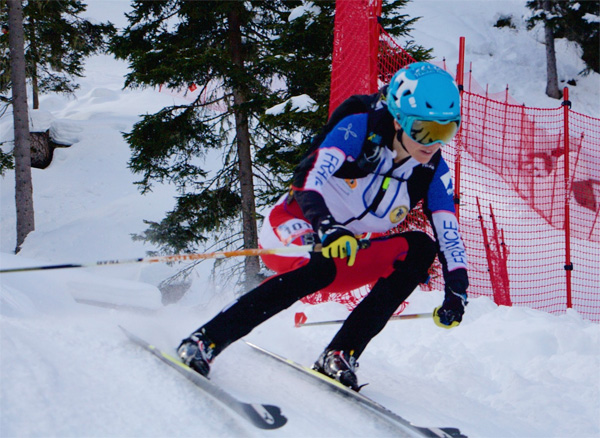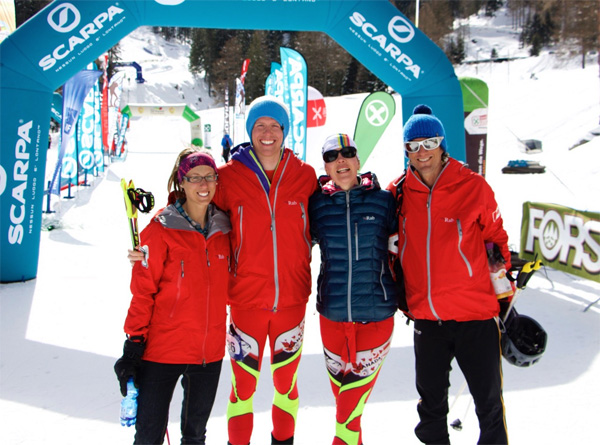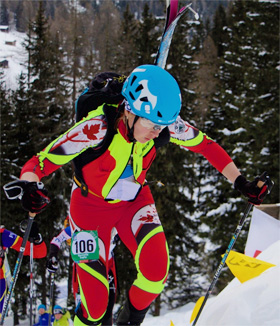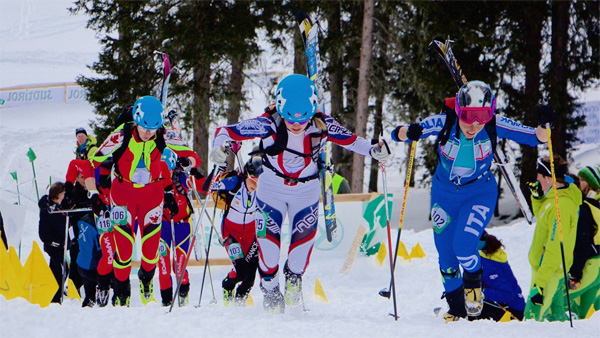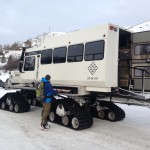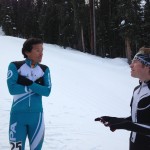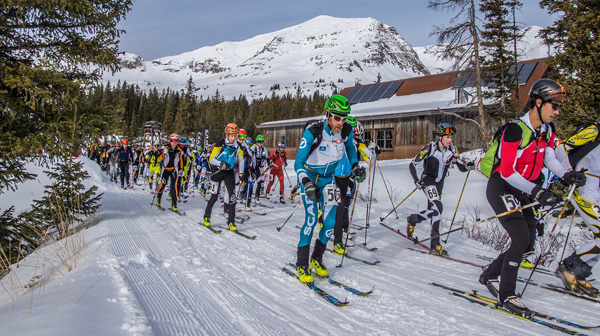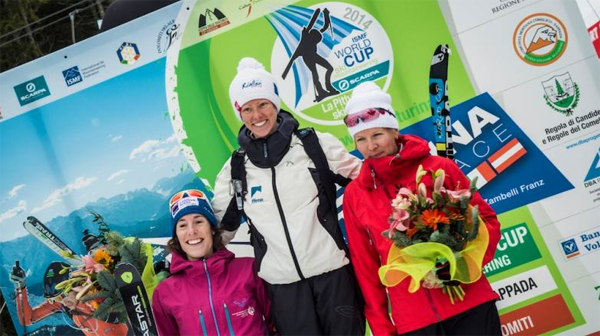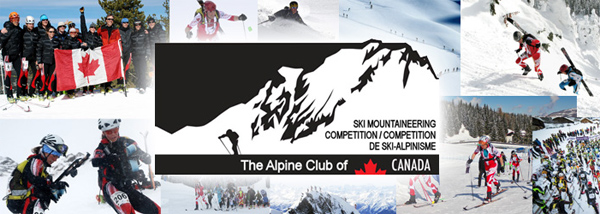
With the conclusion of skimo racing in Western Canada last weekend in Lake Louise, our governing body Ski Mountaineering Competition Canada (SMCC) has released the final rankings for this season. We will take a look at how the rankings are compiled and what it means.
Rankings and How they work
Canadian Cup Rankings:
This season’s Canadian Cup consisted of the six races (at five venues) that were sanctioned by the SMCC – those that conform with the International Ski Mountaineering Federation (ISMF) and SMCC rules. For the first time ever, one of these races was a sprint event. No vertical races were held this year and so the other five were individual events.
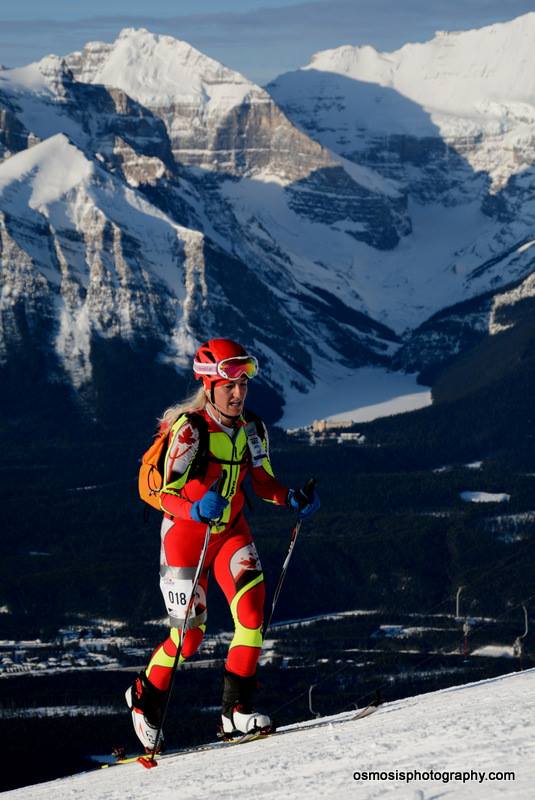
Top 3 Men:
- Eric Carter (USA) – 380 pts
- Travis Brown (CAN) – 330 pts
- Peter Knight (CAN) – 280 pts
Top 3 Women:
- Kylee Ohler (CAN) – 360 pts
- Michelle Katchur-Roberts (CAN) – 320 pts
- Melanie Bernier (CAN) – 300 pts
» Canada Cup Overall Rankings (PDF)
Canadian National Rankings:
The Canadian National Rankings are made up of a so called “Points List” that is designed to accurately rank athletes in comparison one to another using any possible race results for the purposes of aiding (not finalizing) in national team selection for next season.
The Points List results were compiled from all Canadian Cup races, US nationally sanctioned races (e.g. US Nationals or Powder Keg Continental Championships), and World Cup or ISMF events.
The points system was derived from that used by the Canadian Nordic Ski Team. Athletes are assigned points that represent the percentage of time they finished behind the leader. Points are handicapped by the ranking of the race winner – this means athletes who finish near the front of a highly competitive field will be rewarded with better points than finishing near the front of a weak field. For example, finishing within 20% of the winner (say Kilian Jornet) at a World Cup would be worth more points than finishing within 20% of the winner at a Canadian Cup race. The average of an athletes top three points is taken to be their overall ranking. If the athlete has only one or two races, a slight penalty is applied to their average (see notes in the below PDF sheet).
Top 3 Canadian Men:
- Nick Elson – 0.8803
- Rob Krar – 0.8383
- Peter Knight – 0.8080
Top 3 Canadian Women:
- Melanie Bernier – 0.8847
- Kylee Ohler – 0.8601
- Michelle Katchur-Roberts – 0.7828
» Canada National Points List Final (PDF)
What does it mean?
Canadian Cup:
The Canadian Cup does not seek to identify the absolute fastest Canadian skier, but rather any skier with the best and most consistent results within the Cup races. A good example of this is seen in the women’s ranking with Melanie Bernier winning every race she entered (3) but finishing ranked third because of her missing a fourth result. Had she raced one more and finished at least 3rd, she would have won the Cup.
The Vert180 appears to be a good place to get points. Only 2 of the top 8 attended. Similarly, Fernie and Nelson were less well attended than Castle or Lake Louise. It is interesting that Castle was so well attended as it is far away from almost everyone (but it’s closer for the Montana athletes). This suggests that the double race weekend – holding the sprint and individual race – is very attractive to many. Absolute ideal would be to see a minimum of two events at every race weekend in the Canadian Cup. Holding a vertical or a sprint, along an individual, does not add too much extra work for the organizers while greatly increasing attractiveness for racers from further away to attend.
Special mention should go to the very few athletes who attended every Canadian Cup race – by our count, this is only Michelle Katchur-Roberts, Travis Brown, and Peter Knight (forgive us if we missed anyone).
National Points List:
The current points list can be skewed in the event of a race like what happened at Nelson. With new snow and no set tracks, a large group of racers skied together, finishing much closer to the leader than shown in other races, thus, gaining more points than if there were well established skin tracks. This underlines the need for properly set courses and forerunners in the case of new snow. In our experience, as race organizers and athletes, we believe that a forerunner should be a must. Setting out about 1.5-2h before a race starts it gives this person plenty of time to refresh the tracks set day before and to repair any course markings that perhaps got buried or blown away overnight.
However, the points list provides valid information to the SMCC for national team selection purposes. A good example of this is Rob Krar (an accomplished ultra-runner) who is presumably hoping to race for Canada at the 2017 World Championships. With only one race in Canada (though a strong 2nd among Canadians at Nationals last week), his US results support his ranking of second fastest Canadian.


